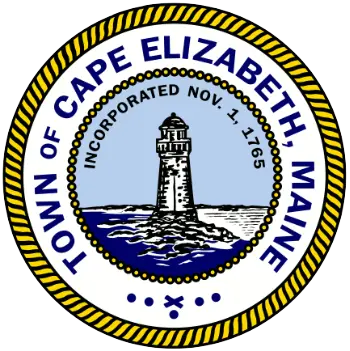Published on January 18, 2024

Town Assessor Clint Swett provided the Town Council with a presentation update on the town-wide revaluation at the Wednesday, January 17, 2024 council workshop. The presentation documents can be found HERE. The workshop video recording of Swett's presentation and council discussion can be found here and directly below:
Highlights from the presentation include the following:

With this slide, Swett provided the results of KRT/assesor home visits according to appraisal codes. The first three codes (shown in red) -- no trespass, refusal-inter, refusal-all -- indicate that there were a total of 142 property owners who prevented and/or refused the visiting appraisers access to conduct field work. There were 164 review of sales records and 365 vacant lots. There were 954 properties where the appraiser was able to conduct an interior inspection and exterior measurements. There were 1,104 properties where the appraiser did not enter the residence, but was able to measure the exterior and was given information by the homeowner at the door. For example, how many bedrooms and bathrooms exist and whether or not the basement is finished. The last code shows that there were 2,076 properties in which the appraiser could only obtain measurements and photos of the exterior because no one was home. According to Swett, the town has approximately 4,200 "Improved parcels," which are parcels with homes on them. "We got information on about half of that data, 50%, which is the industry standard," he said.
Out of the 4,796 properties that were visited by the field agents, a total of 652 residents appealed. Out of the hearings that were conducted, 448 made corrections to the appraisals and 173 were unchanged.
.png?width=640)
Swett explained that the Historic Sales Ratios slide shows that ratios are cyclical. The last market update was conducted in 2011, following the recession. From 2011 to approximately 2016, "The sales and market values were very close and that's because the market was stable," Swett said. As the sale prices of homes began to increase starting in 2017, the ratio began to decrease. Last year, the certified ratio was 50%. "Which means," Swett explained, "if you have a a house assessed for $500 thousand and put it on the market, it's really now worth $1 million." Had the revaluation not been conducted, "Our ratio would have been about 42% -- so sales are still robust and that's why we are doing the revaluation," Swett added.

Going forward, the town plans to review assessing more regularly at approximately every 3 to 4 years and, "Make adjustments to valuations in smaller chunks, so that it is less painful for the residents of Cape Elizabeth," Swett said. Slides of homes which had multiple sales since 2011 demonstrate how the assessment values did not keep up with the sale price.

Next, Swett provided a slide reviewing the percentage of increase among neighborhoods following the revaluation. Individual neighborhoods, with the list of streets within the neighborhoods, are given land codes and provide data specific to each neighborhood. Data on the old median value and average and the new median value and average can be found in the Assessor's presentation and will be included in the upcoming valuation letters.

The neighborhood with the least amount of percentage increase based on sales came in at 164%, while the highest came in at 268%. "The building values are easy. The land is the most difficult part to manage and get right; it's the trickiest part of the revaluation," Swett said. Swett informed the council that he is still awaiting data from KRT, who recently notified him that they found, "Stratification problems with the land, which was based on looking back 12 months." Consequently, KRT has begun recalculations going back two years and, "This will soften the land value," he said. "That being said, all the data I showed tonight will be more accurate in February with the new land values. We want to get this data right and when it's right we will get the valuation letters sent out," Swett said.
Once residents receive their valuation letters, the assessor will have several months to make any necessary corrections. However, Swett emphasized, "Even if your valuation may double, it doesn't mean your taxes will double." Higher town valuations will decrease the tax rate. Currently, the town rate is $22.34, but the new tax rate is estimated to land between $10 and $15 dollars per thousand dollars of valuation. Once the town and school budgets are adopted, the more accurate the estimated tax rate will be.
In closing, Swett reminded residents that they should contact him directly with any questions upon receiving the new valuation letters. Once the town's commitment is made the second week in August, tax bills will be mailed to residents, "Even so," Sweet said, "you have 185 days to appeal after you get your tax bill."
